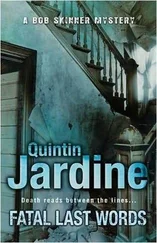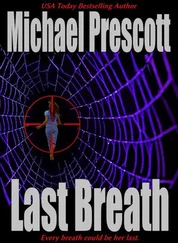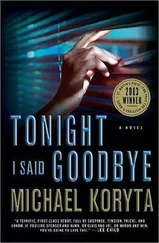“I’m well aware of that, and if you think you deserve yet another apology, then—”
“I don’t,” Mark said. “She does.”
“What?”
“What if Diane Martin had been alive, Jeff?”
“She isn’t.”
“She might have been. What if I’d walked into her town and sat across from her and promised her the answers she deserved would finally be given to her. And then I walked away.”
Jeff’s sigh had some horsepower behind it. “I’m going to say this once, and you need to listen to it and comprehend it: I’ve been busting my ass for weeks trying to convince the board that you are still a trustworthy employee, that when you are given direct instructions, you follow them. Your instructions here are simple: Come home. First flight you can get on. Or drive all night, I don’t care, but you better be back in town tomorrow. You’re going to have to talk with the board at this point. I can’t promise how that will go with you in the room, but I can promise how it will go if you’re not in the room — you’re done. And I won’t vote against it. If you can’t do something as simple as get on a plane when you’re told to, Markus?” There was a long pause, and when Jeff finally spoke again, his voice was sorrowful. “Then even I can’t trust you anymore.”
It was a statement that demanded a response, but Mark couldn’t even grant it his full attention. He was closing on Ridley’s house now, and two troubling things were already apparent: Ridley’s truck was gone, and his front door was standing open.
“Jeff,” he said. “I’ve got to go. I’m sorry. Really, I am. But I’ve got to go.”
He disconnected before he heard another word. He pulled into the driveway and parked in the place where Ridley’s truck belonged and stared at that open door. Maybe it didn’t mean a thing. The wind had been coming in gusts all day; it was certainly capable of pushing open a shut door, and maybe Ridley hadn’t locked it when he left.
Mark doubted that, though.
He got out of the car and called Ridley’s name but heard no answer. He wished he had a weapon.
He walked up the steps and called Ridley’s name again and received nothing but silence, and then he pushed the door wide open and looked inside at the shadowed room. Everything seemed in place, no trace of disturbance, but the shadows teased his mind and suggested possibilities. He found the light switch and flicked it on and breathed a little easier when the shadows vanished and tangible objects took their places.
“Ridley!” The name left his mouth with more aggression than he’d intended. For some reason, the empty place and open door had summoned adrenaline. You weren’t supposed to be scared of empty spaces. Ridley’s house had other ideas.
He walked to the stairs and stopped himself from calling Ridley’s name again. There would be no answer. He had proven that now. He found another light switch and illuminated the hall at the top of the stairs and then went on up. There was a single bathroom, clean and tidy but missing a mirror. The medicine-cabinet frame where it belonged was empty, the contents beyond the door exposed. Past the bathroom was a bedroom, and beyond that another room that was filled with bookshelves. There was a strange shadow to the left, something out of place. Mark hit more lights and saw that there was a false wall that had been turned into a door.
The chill he felt then was almost a prayer — Don’t let me find what I’m afraid of in there — as images of chains and shackles and bones flickered through his mind, all the things a psychotic might store away in secret places. Then he dropped to one knee, pushed the wall back, and saw what it hid: maps.
Nothing else. The wall was lined with maps. Not the sort that hung on the basement walls at Trapdoor, those hand-drawn illustrations of cave interiors. These were topographic land maps. Mark looked at them and thought of what he’d told Julianne Grossman during his trance: that he’d been looking at the wrong maps.
He pushed the wall back farther so he could see one of the topographic maps clearly. It was covered with notations and filled with pushpins.
Burial sites, he thought. My God. If every one of those pins represents a...
But they couldn’t. There hadn’t been that many missing people in Garrison County in the past hundred years, probably, and Ridley wasn’t known to range far from home. So what had he been locating?
Mark climbed farther behind the wall, studying the maps. None of them were of Trapdoor. None of them showed anything that made them worth hiding, as far as he could tell.
Wrong maps. You said you were looking at the wrong maps.
He’d looked at every map he knew existed, and now he was looking at others, but still he didn’t see where his mistake had been made, because he hadn’t known these existed before.
You told me your mother wouldn’t have made the same mistake.
But his mother wouldn’t have known about Ridley’s maps. Where was the joke there? Julianne said that he’d laughed before he said it. Hilarious stuff going on in his subconscious, apparently, but he couldn’t imagine what it had been.
It took him a while but he finally found the location of Trapdoor on the map. He traced the outline of Maiden Creek with his index finger and came up to the road and the place where the trailer stood and then he stopped and for a long moment he didn’t move or make a sound.
There had always been other maps, and they’d always been available to him. They were the ones that counted too. Everyone else cared about the ones Ridley had not shared, but those mattered only when they were paired with others: the ones of the surface, the ones that showed ownership.
He left Ridley’s hidden room and walked back down the stairs. In front of the cold stove where Ridley had once sat with bright eyes and told Mark that someone needed to speak for Sarah Martin, Mark sat and called Jeff London.
“Call back after a hang-up,” Jeff said. “Let me guess — you’re in trouble. What can I do for you?”
The bitterness in his voice was valid, but Mark couldn’t worry about it. Not now.
“You got a computer handy?” he said.
“Hell are you talking about?”
“I need to know whether Garrison County has a GIS database.”
GIS stood for geographic information system, computer-mapping technology that had its origins in nuclear-war fears during the 1960s but was now common for local property records.
Jeff was silent for a moment. When he spoke again, he sounded near desperate, a broken man asking a priest to explain to him once more why he should believe.
“What do you think this can accomplish?” he said.
“Ridley wants the cave,” Mark said. “I can’t explain how much it means to him. He believes it’s something more than a cave. But he’s no fool. He understands access. He understands that someone owns it. And that he isn’t that man.”
“Tell me why that matters.”
“I’m not sure.”
“Markus—”
“I’m almost there!”
This time the silence went on so long that Mark thought Jeff had hung up. He actually pulled the phone away and looked at the display, saw the ticking seconds. A countdown of trust. It had to blow at some point.
“They have a GIS database,” Jeff said. Speaking in measured tones now, clinically. Like Dr. Desare when he’d explained how Mark had been brought back from the dead. “Who do you want me to search for?”
“Ridley Barnes.”
Pause. “One property. Five acres, with a single residential structure valued at—”
“I’m standing in it now. I don’t need the specs. Try again. First name Pershing, last name MacAlister. M-A-C.”
Читать дальше












